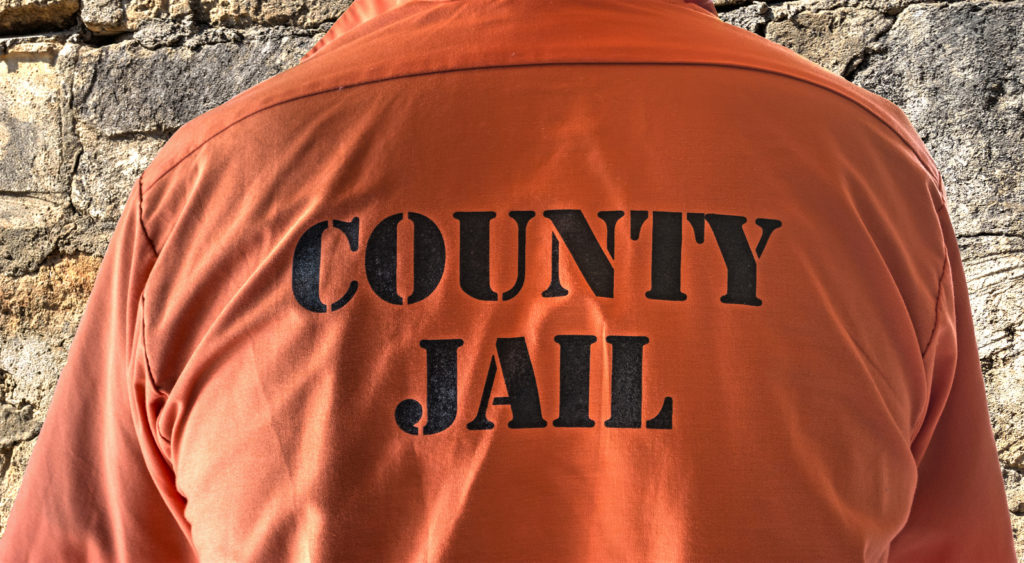The vast majority of arrests are conducted by police officers. However, everyone – including you – has the power to make an arrest by conducting what’s called a “citizen’s arrest.” Citizen’s arrests are uncommon compared to arrests by law enforcement, but when they do occur, they can have serious legal consequences – for both parties. If one of your family members is in custody at the Salt Lake County Jail or another county jail in Utah because they were arrested by a private citizen, you should contact an experienced criminal attorney right away for legal assistance.
When Can a Private Person Make a Citizen’s Arrest Under Utah Code 77-7-3?

Put simply, a citizen’s arrest is any arrest made by a person who is not a member of law enforcement. The arresting citizen could be a cashier, a salesperson, a business owner, or any person you encounter on the street.
Every state has slightly different laws addressing when, how, and under what circumstances citizen’s arrests may be performed. In Utah, the relevant statute is located at Utah Code § 77-7-3, a short and plainly-worded statute that provides, in full, the following:
“A private person may arrest another:
(1) For a public offense committed or attempted in his [or her] presence; or
(2) When a felony has been committed and he [or she] has reasonable cause to believe the person arrested has committed it.”
In other words, anyone may make a citizen’s arrest in Utah as long as they either:
- Witness a misdemeanor or felony crime taking place.
- Have reason to believe that the person committed a felony. Some examples of felony offenses, which are more serious than misdemeanors, include:
Notice how, in the statute’s language, citizen’s arrests that are based on “reasonable cause to believe” are lawful only with regard to felonies. Where misdemeanors are concerned, the person conducting the arrest must actually witness the actual or attempted misdemeanor taking place in order for the arrest to be lawful. Some examples of misdemeanor offenses in Utah include:
- Possession of Marijuana (under 1 ounce)
- Public Intoxication
- Simple Assault
- Theft ($500 or less)
Some crimes can be charged as misdemeanors or felonies, such as lewdness (indecent exposure), vandalism, and unlawful sexual activity with a minor. Prosecutors have discretion over how such crimes should be charged.
Under Utah Code § 77-7-6, a private person (or, for that matter, a police officer) is generally required to “inform the person being arrested of his [or her] intention, cause, and authority to arrest” the arrestee. However, this sort of notification is not required in situations where:
- It would endanger a person’s life or safety.
- It would allow the arrestee to escape.
- The arrestee is in the process of committing, or attempting to commit, an offense.
- The person making the arrest pursues the arrestee immediately after he or she has committed an offense.
Can You Go to Jail Because of a Citizen’s Arrest?

Citizen’s arrests should be taken seriously, because they can result in the incarceration of the arrestee. However, they can also be fraught with peril for those who attempt to perform them. There have been incidents in which the people making citizen’s arrests were subsequently arrested by police.
For example, in 2011, 24-year-old West Jordan resident Brett Adams was arrested after making a citizen’s arrest of Kasey Beatty, also 24. Adams, who suspected Beatty of child molestation, confronted Beatty in a local parking lot where, according to reports from the Salt Lake County Jail, he then “told [Beatty] he was being arrested and had him place his hands behind his back and… put zip ties on him.”
Upon arriving at the West Jordan police station with Beatty in tow, Adams was arrested for aggravated kidnapping, a felony under Utah Code § 76-5-302, and taken into police custody. Adams was held in custody on a $50,000 bond, while Beatty – whose bond amount was twice as high – was charged with two counts of sodomy on a child, a first degree felony under Utah Code § 76-5-403.1.
“If they felt that an offense occurred,” said West Jordan Police Sgt. Drew Sanders, “honestly they could have just called us and we would’ve investigated it and this all would have been a non-issue on their part.” He added, “There’s a strong potential [a citizen’s arrest] could end in trouble,” and encouraged concerned citizens to report crimes rather than trying to handle them independently.
“Just because someone has a warrant or you feel an alleged crime occurred,” Sanders cautioned, “doesn’t mean you can go take him into custody.”
Let Our Skilled Criminal Defense Attorneys Handle Your Citizen’s Arrest Case
If one of your family members was placed under citizen’s arrest, get experienced legal help from an aggressive criminal defense attorney. Call the law offices of Overson Law at (801) 758-2287 right away to set up a free consultation. Salt Lake City criminal defense lawyer Darwin Overson has over 16 years of experience working on thousands of criminal cases, and is available to make county jail or holding center visits wherever necessary.






